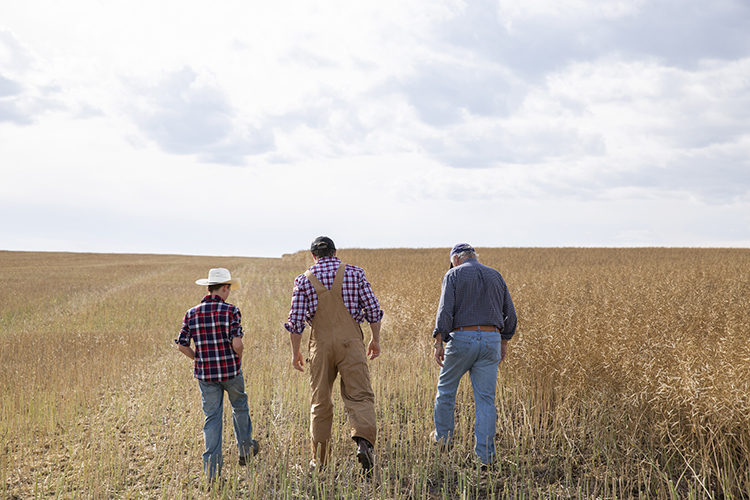
Transitioning family farms is a process that takes time and sometimes can come to a standstill. Monica McConkey, a Rural Mental Health Counselor with Eyes on the Horizon Consulting, shared ways to help families navigate through farm transitions on an episode of the Professional Dairy Producers of Wisconsin’s (PDPW) Dairy Signal broadcast.
The first topic McConkey brought up was the importance of understanding generations. Having a simple understanding of the differences between younger and older generations can help with communication in transition conversations.
Often, during a farm transition, an older generation may have feelings of uncertainty about their identity or purpose if they are no longer farming. Their physical abilities may be declining, and they could be facing the reality of their own mortality. They may also have concerns about the ability of the younger generation to succeed and concerns financially about how they will support themselves if they are no longer a farm owner.
Younger generations typically have a desire to make changes on the farm. They prioritize their family and farm balance and sometimes are uncertain of their role on the farm. They also have financial concerns about moving into ownership of a farm. There may be sibling conflicts, and they worry about communicating with the older generation on the farm about their safety and roles on the farm.
McConkey shared helpful strategies that help move farm transitions forward.
- Farm transitions need meetings.
- All players need to be at the table for these meetings.
- Have conversations with each partner individually prior to the group meeting to know what everyone wants.
- Determine common goals, values, philosophies, and a legacy for the farm.
- Set a realistic timeframe.
- Conduct personality and communication style assessments.
- Determine current roles, roles during the transition, and roles post-transition.
- Honor the older generation and their knowledge of navigating through hardships.
- Promote compromise on disagreements.
- Keep the Golden Rule central.
McConkey also had reminders about how to handle conflict during meetings.
1. Set group rules.
a. Silence is agreement or acceptance, but she mentioned there are exceptions to this rule.
b. No interruptions.
c. No blaming.
d. Be kind.
2. Take a break if attendees are too emotionally elevated to contribute.
3. Emphasize active listening.
4. Develop an agenda that is shared with attendees prior to the meeting.
5. Understand what is happening in the brain when conflict arises and how deep breathing and writing can help. At some point, no progress will be made if emotions are elevated and participants are unable to be calm.
6. Identify the real issue.
In closing, McConkey said, “Really tune into yourself. What is my role in things that are not moving forward, what is it in the conflict, and what is it moving forward?” Farm transitions require cooperation with your bankers and lawyers. If the transition becomes stalled because of disagreement, consider bringing in an outside counselor to move meetings forward.
To comment, email your remarks to intel@hoards.com.
(c) Hoard's Dairyman Intel 2023
October 12, 2023








